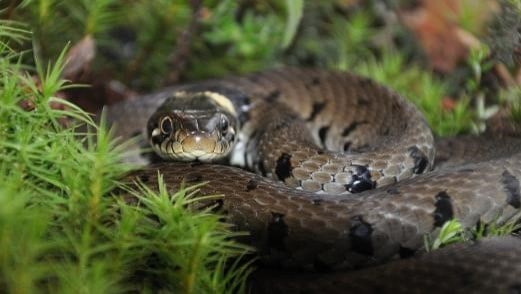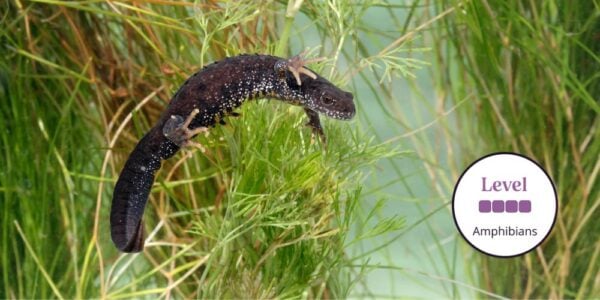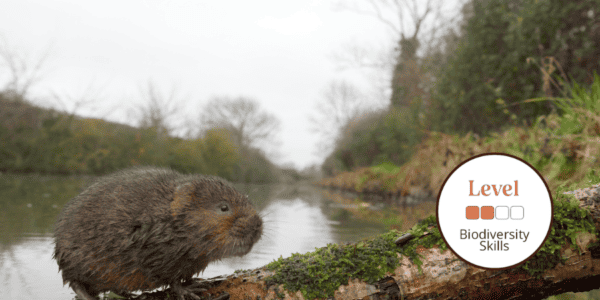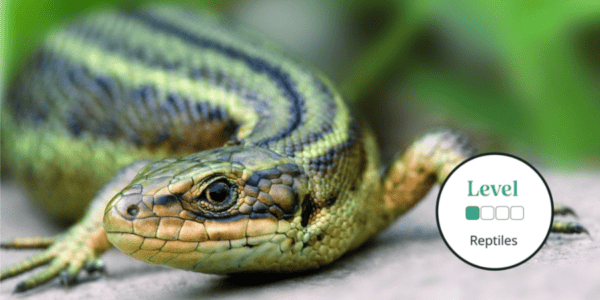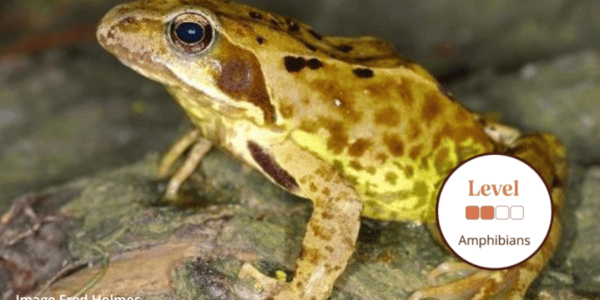This course is a great introduction for anyone with an interest in reptiles and for those looking at taking their first steps into an ecology career. You will learn how to identify our native reptiles, and become familiar with their ecology.
There are six native species of reptiles in the UK that you will learn about during this course. Being able to identify species and make site adjustments for reptiles is a critical skill for anyone looking at working within a consultancy career.
This course will cover:
- Introduction to Reptiles
- UK Reptile Identification
- UK Reptile Ecology
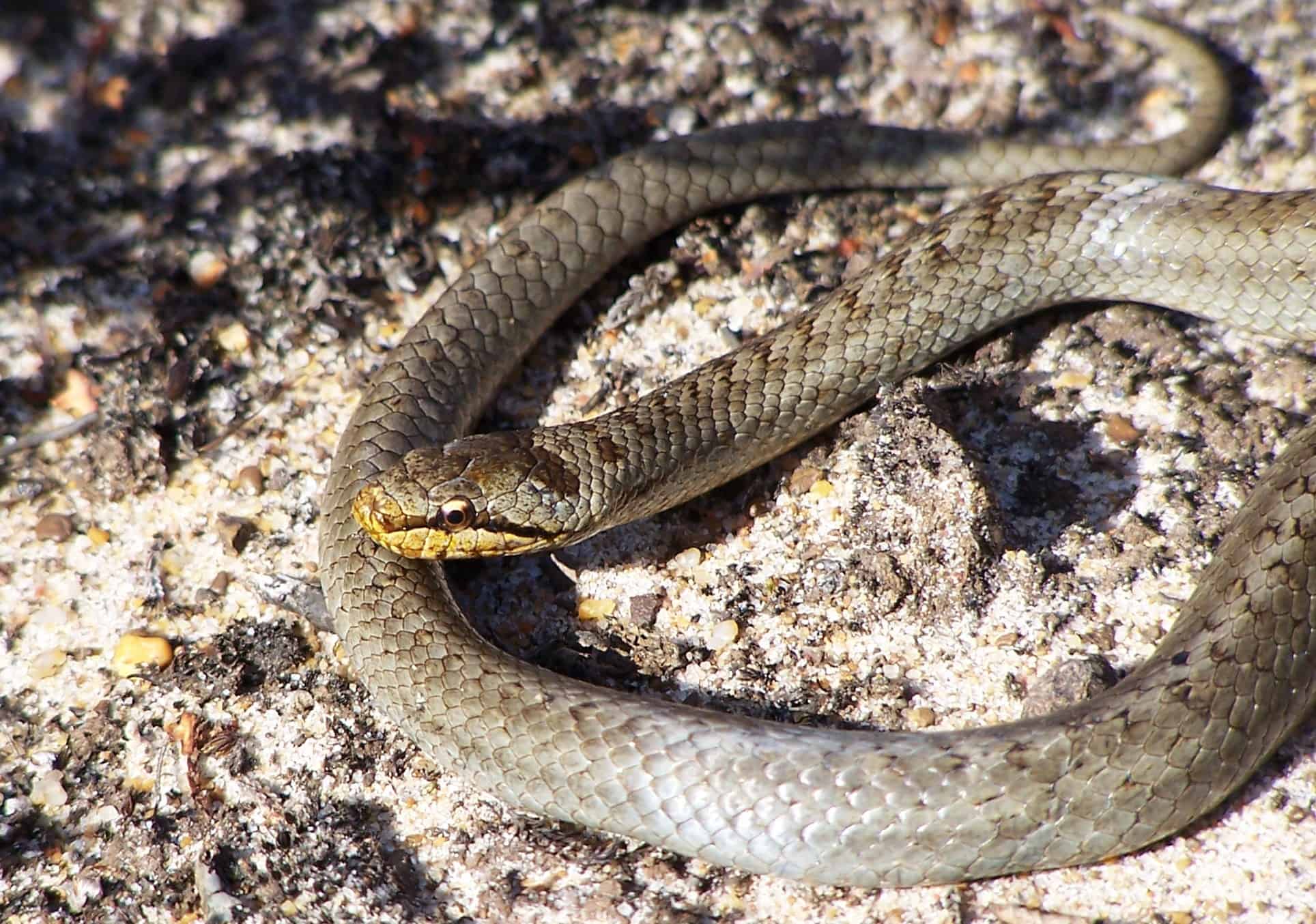
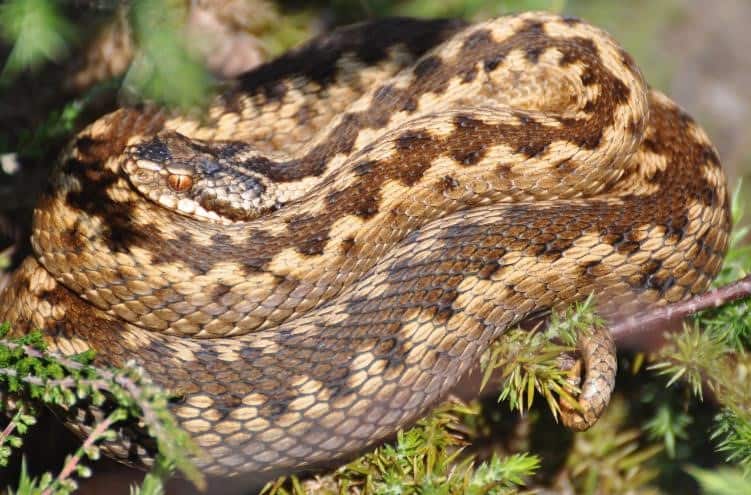
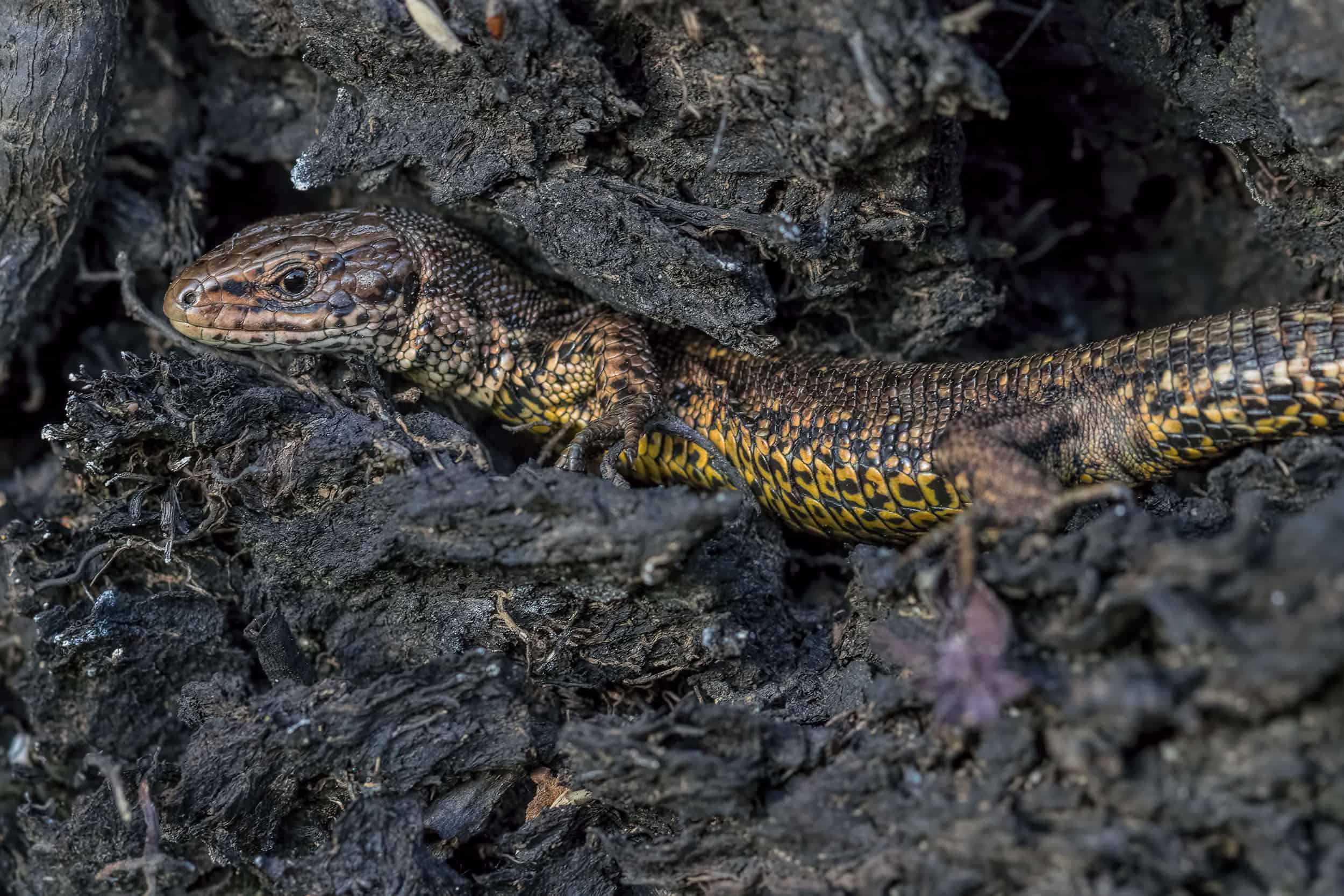
Read More
This beginner course will introduce you to the key characteristics of reptiles, and will then look more in-depth into UK species. By the end of the course, you will be able to identify common UK species as well as non-natives, explain their basic ecology and also have a basic understanding of key mitigation needed when working in an area of interest for reptiles.
PLEASE NOTE the course fee is for tuition only. There is no accommodation or lunch provided with this course.
Bookings will close if course capacity is reached.
By the end of the course, you will be able to:
- Explain Reptile taxonomy, anatomy, and main ID features and how they differ from other animals
- Identify UK Reptile species
- Describe the different habitats, ranges and life cycles of UK reptiles
- Identify reasonable adjustments that need to be taken to protect reptiles
- Share this knowledge with friends, family, and fellow volunteers
Who Should Attend? – The course is for anyone interested in reptiles and is looking to improve their ability to find, identify and understand the ecology of British reptiles. This includes nature enthusiasts, students, early career ecologists, citizen scientists and volunteer surveyors.
Knowledge Level – Beginner. Level descriptors can be found on the following web-page: Framework and Course Level Descriptors
Prior Knowledge – No existing knowledge, or experience is needed for this course. Just a willingness to explore and learn.
Please email [email protected] if you have any questions.
About our partner, ARC
The Amphibian and Reptile Conservation Trust (ARC) was established in June 2009. ARC was created around the core of the Herpetological Conservation Trust (HCT), in response to the wider needs of herpetofauna conservation, providing the UK focus for all aspects of reptile and amphibian conservation. ARC continues to focus on the UK Biodiversity Action Plan, creating an extensive network of nature reserves, coordinating monitoring programmes and volunteer networks and developing an effective role in advocacy both within the UK and Europe.
About the Tutor
Dr Rob Ward
Dr Rob Ward is a conservation biologist who has been working with amphibians and reptiles for 15 years and completed his PhD on the ecology and conservation of grass snakes. He is currently the Data and GIS Officer for the Amphibian and Reptile Conservation Trust (ARC) where his work includes developing reptile and amphibian monitoring programmes and managing the organisation’s data and mapping.
Example Timetable
Example Timetable
This timetable is subject to change but should give a clear outline of what to expect.
- Please arrive in time for the course to start promptly at 10:00am
- The course will end at 5:00pm
10:00am Introductions
10:15am Classroom session covering:
- Introduction to reptile taxonomy
- Introduction to reptile anatomy
- Main identification features and how reptiles differ from other animals
12:00pm Lunch – not included
1:00pm Classroom session covering:
- UK reptile identification
- UK reptile ecology
4:30pm Classroom plenary and final questions
5:00pm Finish
There will be comfort breaks scheduled throughout the day and if there is time there will be a field visit conducted with the aim of practicing your identification skills in the presence of your expert tutor.
Please note accommodation, refreshments and an evening meal are not included.
What's Included
The course has been carefully created by expert tutors and educators to help you continue to build and develop your knowledge and apply it within the field surrounded by like-minded individuals.
The course includes:
- Classroom learning covering the theory of the species
- Field excursions to apply new knowledge
- Expert tuition for which the Field Studies Council is renowned
- Clear objectives and progression
You can rest assured that the absolute best content from an expert in environmental education will be provided. In choosing a Field Studies Council course, you will be joining thousands of people who learn with us each year.
Bursaries and Subsidies
Student Discount
This course is eligible for a student discount. If you are a current student, please use discount code BioStudent20 at checkout for 20% off all Biodiversity courses.
Before You Attend
What to Bring:
- Notebook and pencil
- Camera to capture images
- Lunch and refreshments
- Sensible footwear and clothing for being outdoors
You may wish to purchase the FSC Guide to Reptiles and Amphibians to enhance your experience
There will be a member of staff with first aid training and access to a first aid kit on site. If you have special medical or access requirements, please let us know as soon as possible so we can plan the course.
Opportunities to attend this course
This course is not currently available to book. Dates will follow soon.
Sign up to our Email Newsletter
Progress Your Learning
This is a training course from the Field Studies Council, delivered by expert tutors with an approachable learning style. After attending this course, you may like to progress your learning with further relevant courses or branch out into other areas of natural history. The Field Studies Council offers both online and in person courses, so you can choose the learning style that suits you best.
The course gives you the opportunity to immerse yourself in a new subject and acquire novel skills. Our online portal gives you time to study at your own pace and fit the lessons around your own schedule.
If you have any questions about our courses please check our Frequently Asked Questions or email [email protected].
Group Bookings Made Easy
If you have a group of 10 or more individuals wanting to complete one of our courses, our team are available to discuss your options – from discounts to private team courses. Click here to find out more!
You can rest assured that the absolute best content from an expert in environmental education will be at your fingertips. In choosing a Field Studies Council course, you will be joining thousands of people who learn with us each year.

